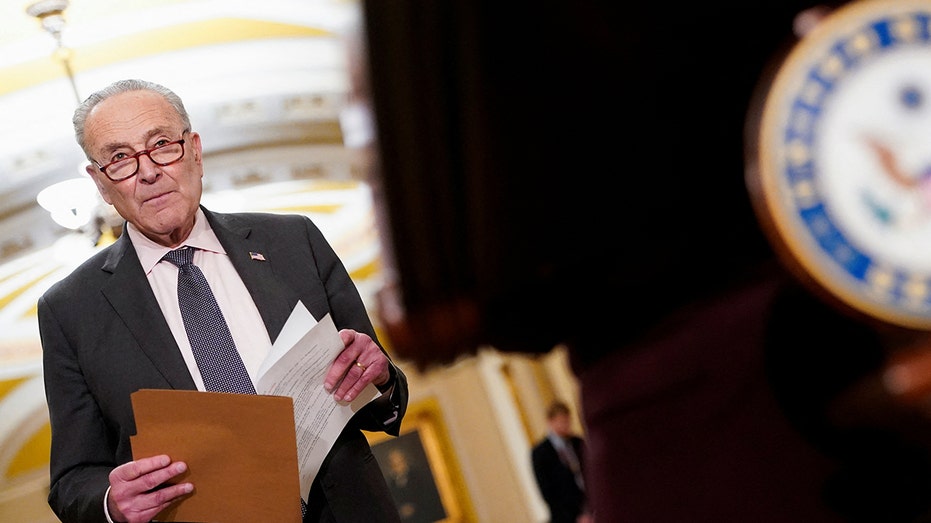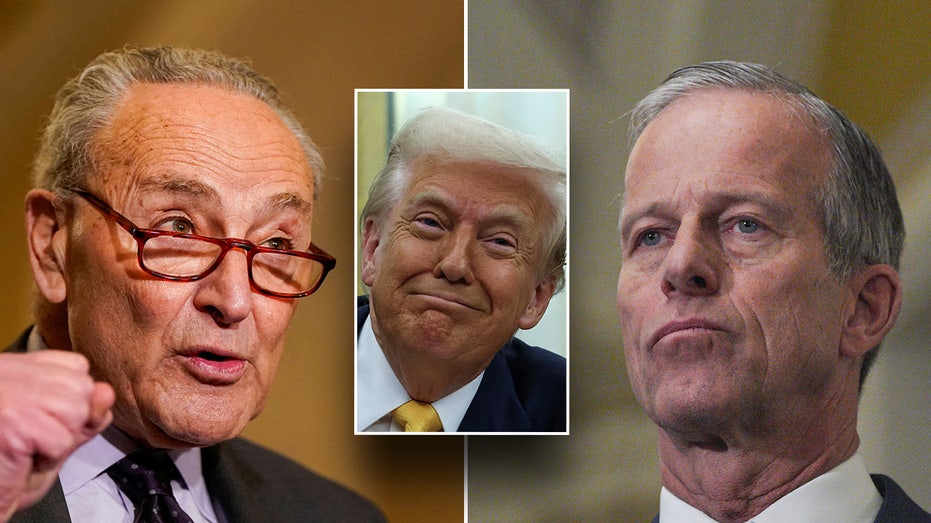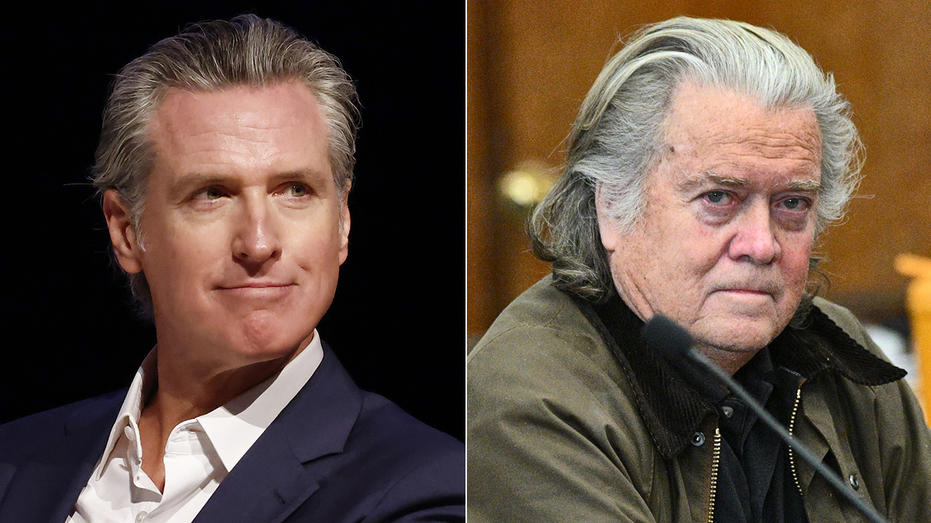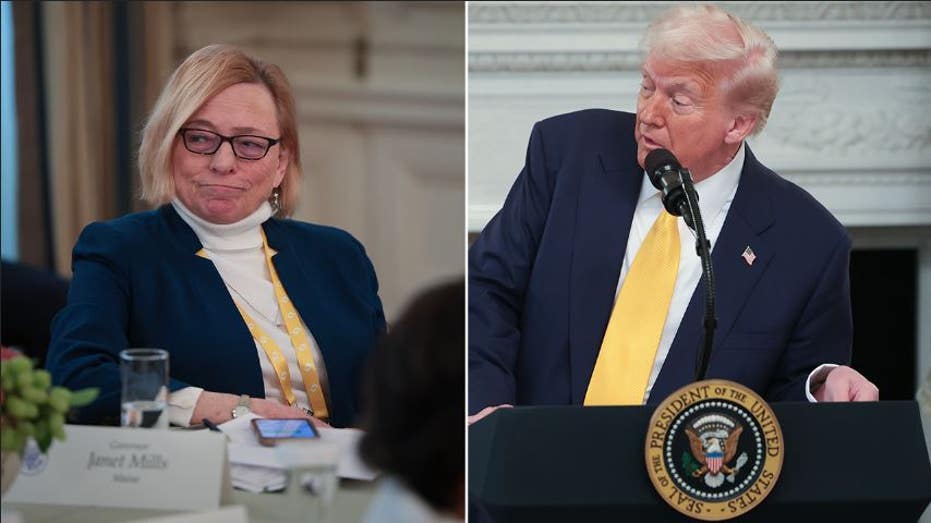- by foxnews
- 15 Mar 2025
‘The US lost its shame muscle’: why sex no longer scandalizes in politics
‘The US lost its shame muscle’: why sex no longer scandalizes in politics
- by theguardian
- 28 Sep 2024
- in politics
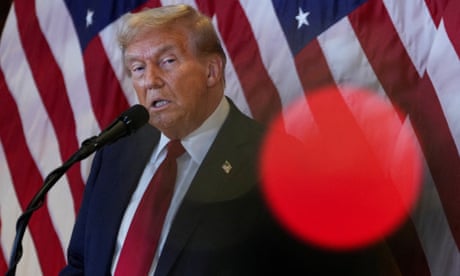
Earlier this year, at Donald Trump's hush-money trial, adult film star Stormy Daniels told jurors how at age 27, she met a 60-year-old Trump, whose wife had only recently given birth to their son, for what she thought was dinner. She arrived to find him in satin pyjamas and, during an encounter that included very "brief" sex, the business magnate told Daniels that she reminded him of his daughter, Ivanka.
I'm not dragging all this up again to put you off your dinner. I'm bringing it up to remind you that, while all these sordid details made headlines and generated jokes on late-night talkshows, they didn't move the needle with Trump's voters at all. His base, which includes evangelical Christians, simply didn't care. Nor were they bothered about Trump's association with Mark Robinson, the disgraced Republican candidate running to be North Carolina's next governor who was allegedly once active on a porn forum called Nude Africa where he boasted about being a "perv".
The 2024 US elections may have provided a constant stream of revelations ranging from the mildly salacious to the downright disturbing. It's not just Trump: there's the recent reports of New York magazine star reporter Olivia Nuzzi having a personal relationship with Robert F Kennedy Jr during his presidential run and sitting representative Matt Gaetz being investigated for human trafficking and paying for sex with minors. Yet despite the many lurid and often unpleasant details, political sex scandals just don't seem to have much bite anymore.
"We have lost our shame muscle in the United States," says Dr Alison Dagnes, professor of the political science department at Shippensburg University. She argues that because politicians aren't shamed into retiring from public life, details of these scandals remain mostly rumors and fade from the public memory. "Certain politicians are realizing that if you don't apologize for something, then nobody can use it against you again. For those who are shameless, that is a very effective way to get through life."
It hasn't always been like this. Being embroiled in a sex scandal used to swing an election or destroy a candidate. In 1987, Gary Hart was the presumed Democratic presidential candidate - until reports of "womanizing" and being caught in an affair derailed his campaign. In 2008, North Carolina senator John Edwards, a star in the Democratic party, was on a path to the presidency until he was caught covering up an extramarital affair that resulted in a child. His career imploded and he vanished from public life.
Clearly, things have changed again since then. Partly this is due to the fact that America's trust in media has fallen to historic lows in recent years - a phenomenon that is linked to growing polarization. Jay Van Bavel, a professor of neural science at New York University and an expert in "the partisan brain", notes that "people don't trust institutions and media sources that aren't aligned with them ideologically". Many of Trump's supporters simply don't believe his accusers, and don't believe the media sources reporting on his actions.
Even if people do believe allegations about a politician, says Van Bavel, "they're willing to excuse bad behaviour and continue voting for a person or party member because they don't want the other party to take power". A 2020 study that he worked on, alongside 14 other prominent researchers, looked at survey data since the 1970s and found that, for the first time, contempt for the other political party is greater than affection for one's own. Voting behaviour is now essentially driven by who you hate the most.
Trump, of course, is well aware of this. In 2016, the former president joked that he could stand in the middle of Fifth Avenue and shoot somebody and he still wouldn't lose any voters.
But Trump is a unique case. There may have been a loosening of America's moral compass but there are still lines that most politicians can't cross.
Some of these lines are dictated by a cultural moment. See, for example, Democratic senator Al Franken, who resigned in 2017 because of sexual misconduct allegations. Were it not for the fact that it was the start of #MeToo and Franken was a Democrat, he could probably have weathered the accusations, suggests Jodi Dean, a professor in the political science department at Hobart and William Smith Colleges. But "it seems like a Democratic base want purity". And "Franken had a sense of shame", so he stepped down.
Mixing sex and taxpayer money also makes a scandal more difficult to weather. "If it is an issue that's a private matter, the American public is more likely to let it go," Dagnes notes. "But if there's some sort of official corruption involved, then they're less likely to." Dagnes references the recent case of Republican Anthony D'Esposito who, according to a New York Times investigation, put his fiancee's daughter and a woman with whom he was having an affair on his payroll.
"I would expect D'Esposito to really take a big polling hit," says Dagnes. "This isn't just: 'My fiancee and I were going through a really difficult time' - it's a case of: 'I feel so emboldened that I'm going to put my mistress and my fiancee's daughter on my payroll,' which is paid by the American taxpayer. That makes voters feel duped."
Gender also plays a part in how sex scandals are received, with women routinely being held to far higher standards than men. Dagnes notes, for example, that the right has been trying very hard to manufacture a scandal out of the fact that Kamala Harris, who was single at the time, had a relationship with San Francisco mayor Willie Brown, who was also single at the time, in the 1990s. Somehow they think this makes her "a slut". There is, for example, a lot of merchandise for sale with the phrase "Joe and the Hoe Gotta Go".
This isn't to say that women, particularly attractive young white women, are always held to higher standards than men. While Nuzzi has been put on leave by New York magazine following news of her previously undisclosed relationship with RFK Jr, she has also been cut a surprising amount of slack for what is clearly professional misconduct. "Reporters have all sorts of compromising relationships with sources," shrugged Ben Smith from Semafor. "The most compromising of all, and the most common, is a reporter's fealty to someone who gives them information. That's the real coin of this realm. Sex barely rates."
That said, Nuzzi is certainly getting dragged through the mud for the affair more than RFK Jr, who is well-known for what he has called "wild impulses" and "lust demons". Previous reports about Kennedy's private life suggest he detailed extramarital encounters with 37 women in a 2001 diary. That didn't stop him from trying to run for president, of course. But neither did allegations he once assaulted a babysitter - to which he responded by stating: "I am not a church boy." Kennedy also hasn't let brain worms or dead bears get in the way of his political ambitions.
The fact that sex scandals no longer seem to register with voters seems to be linked to a wider acceptance of outrageous political behaviour. "Politicians can now go out and say that they're in favor of nuking Gaza [as Senator Lindsey Graham and Representative Greg Murphy have hinted towards]," Dean observes. "Politicians are openly bloodthirsty and genocidal. That's permissible speech right now. Ours is now a time where genocide is not a major scandal, where climate change is not a major scandal. We really might be over the age of where an individual's act is going to gather the same amount of tension as it once did. We're seeing a sense of right and wrong totally breaking down."
- by foxnews
- descember 09, 2016
Neighbors react as viral 'Tunnel Girl' granted permit to continue digging massive bunker under home
"Tunnel Girl" in Herndon, Virginia, "finally" got her tunnel project approved after pausing the project due to a potential violation. Locals and social media users react.
read more